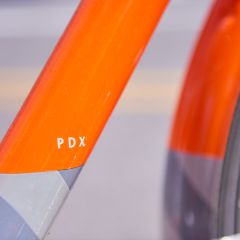
Business and Financials
Travel Portland is primarily funded by local lodging taxes and receives additional revenues from our contract to market the Oregon Convention Center, partner dues and co-op programs.
How We’re Funded
Approximately 42% of Travel Portland’s funding comes from the Portland Tourism Improvement District (TID), a city-approved and hotelier-proposed assessment of two percent per night on guest room revenues for all hotels and short-term rentals located within the city of Portland. Another 21% comes from the transient lodging tax, a nightly tax levied on visitors who occupy rooms in the city of Portland and Multnomah County. Approximately 17% of the bureau’s budget comes from the Metropolitan Exposition-Recreation Commission (MERC), which contracts with Travel Portland to market the Oregon Convention Center. The remainder of Travel Portland’s budget comes from partner dues, fees and co-op programs.
Strategic Plan
The Travel Portland 2024–2026 Strategic Plan details how our work supports the organization’s four key business priorities:
- Implement equity, diversity, inclusion and accessibility practices across
Travel Portland’s operations and strategies. - Monitor and enhance Portland’s reputation as a visitor
destination. - Generate demand for Portland as a leisure-travel destination.
- Generate convention business opportunities for the city.
Tourism Improvement District
In 2012, Portland’s hotel community united to create a new funding stream to enhance promotion of the Portland Region as a preferred destination for meetings, conventions and leisure travel. To accomplish this, Portland’s City Council passed an ordinance creating the Portland Tourism Improvement District (TID) on June 20, 2012. In June 2018, the City Council approved a new ordinance expanding the TID to include short-term rentals and hotels with fewer than 50 rooms.
In March 2021, the Portland City Council voted unanimously to make the TID permanent. With the same vote, the City Council approved a temporary 1% economic recovery surcharge, to be reviewed after five years.
In December 2023, the Portland City Council voted to make the 3% TID permanent, stating, “Eliminating the requirement for future sunset review and establishing the TID fee rate at 3% will provide crucial stability to the funding needed for recovery of the travel, tourism, and lodging industry in Portland by supporting Travel Portland’s longer term strategic investments in various initiatives such as sales promotions and marketing programs that position Portland as a safe, attractive destination for meetings, conventions, and leisure travel. These funds will also support continuation of Travel Portland’s successful partnership with Sport Oregon, which attracts major sporting events that drive out-of-town visitation as well as providing stable, long-term funding for the Portland Film and Events Office, which supports events and film productions that yield room nights.”
What Is the Tourism Improvement District (TID)?
Portland’s TID is a city-approved and hotelier-proposed assessment of 3% per night on guest room revenues for all hotels and short-term rentals located within the city of Portland.
The TID provides a stable source of tourism funding to support sales, marketing and promotional efforts with the ultimate goal of increasing hotel occupancy and overall visitor spending in the market. Unlike the existing transient lodging tax, the funds gathered through the Tourism Improvement District assessment are managed by hoteliers, not the city. The funds are shared with Travel Portland through the existing city structure for gathering and distributing hotel fees.
With the TID assessment and economic recovery surcharge, Portland’s per-night hotel assessment of 16% is in line with other major West Coast cities and like-sized U.S. cities. Additionally, Portland’s lack of sales tax is an extra draw to convention and leisure visitors.
Travel Portland’s TID-funded marketing and PR efforts have produced significant results for the local economy. Intent to travel to Portland among U.S. adults nearly doubled from 2013 to 2018, according to MMGY Global research. And ad-accountability studies by Longwoods International show that Travel Portland’s consumer marketing campaigns from 2013–2017 generated incremental visitor spending of $418.5 million and incremental state and local taxes totaling $21.3 million. This translates into thousands of additional tourism-related jobs in the Portland market.
More Information
Below you can find background information on the TID, how it benefits Portland and the specific ordinance and city code language that created it.
- Chapter 6.05 Tourism Improvement District
- Portland City Council approves Tourism Improvement District (TID) (PDF)
- TID overview from Civitas (PDF)
- City council documents (1.2 MB PDF)
Was this page helpful?
